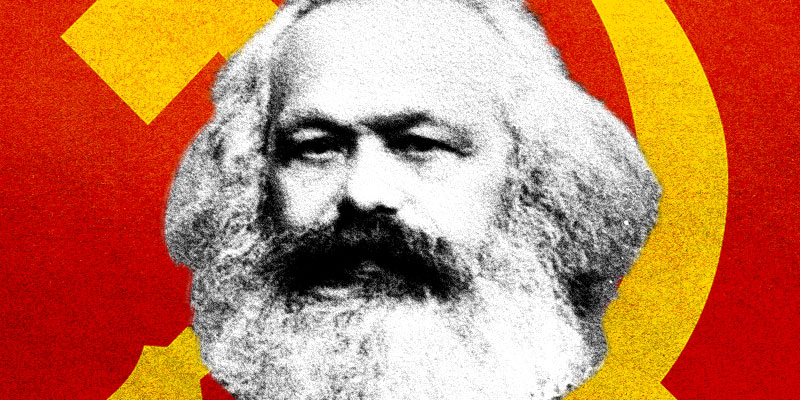May 5th was the 200th birthday of Karl Marx, the economist who devised socialism. Last November was the 100th anniversary of the Russian Revolution, the first attempt to implement Marx’s ideas. During the 20th Century, millions of revolutionaries fought for communism, and today polls show that perhaps half of Millennials identify as socialists.
What is the enduring appeal of Marx’s ideas? I think this is best seen in his famous slogan, “From each according to his ability, to each according to his needs.” This sentiment is quite reasonable, and is how healthy families operate: parents support their young children, and then children care for aging parents.
But is it a good way to organize society?
Society is thousands of times more complicated, and extends far beyond familial bounds. Questions immediately arise: Who determines need and ability? How much must the able contribute? And, How much will the needy receive? A socialist government answers these questions.
Consequently, socialism must intrude on individuals. Determining whether an operation is truly necessary or if diet and exercise could suffice, for example, requires a medical and personal history. Must a would-be artist become an engineer because a test revealed their aptitude and society needs engineers? Such details make Marx’s slogan seem less appealing.
Another tension emerges when people fail to live up to Marx’s slogan. A person with great ability, for example, would have to contribute more, with rewards based only on their need. Working 80 or 100 hours a week as a doctor for the same standard of living as a person working 40 hours a week might not seem like a great deal.
Historian Robert Conquest in his book Harvest of Sorrow about famine in Ukraine under Stalin describes what happens when people fail the doctrine. Communist party officials, angry when output fell with the collectivization of agriculture, blamed wealthy farmers, known as kulaks, for hoarding and wrecking collectivization. With the power of government at their disposal, anger toward the kulaks turned violent.
Many nations adopting communism experienced mass state-sponsored violence. The Victims of Communism Foundation memorializes the more than 100 million victims of these regimes. The vast majority of these deaths were due to power-hungry leaders; socialism was tried to varying degrees in Britain, France, and India without government murder. But violence against persons seen as thwarting a noble plan can easily be justified as a means to an end.
Another famous economist, Adam Smith, offered a different take on society. Smith understood the power of voluntary cooperation through markets and observed, “It is not from the benevolence of the butcher, the brewer, or the baker, that we can expect our dinner, but from their regard of their own interest.” Markets harness self-interest to serve peoples’ needs.
Many consider Smith’s vision as morally inferior to Marx’s, perhaps because it relies on self-interest instead of sacrifice. This, I think, is unfortunate. Viewing other people as means to our own ends has, unfortunately, been far too common in human history. The Pharaohs of Egypt built the pyramids using other humans as slaves, showing them as much respect as the stones used in construction. Government planners, Professor Smith noted, often view people as just pieces to be moved around a chess board at will.
Markets make people deal with others voluntarily. We cannot treat the butcher, brewer, or baker as means to our ends. Instead, we must recognize them as humans, and offer them something they value for their assistance.
Self-interest has proven a more effective basis for organizing an economy than sacrifice. Economic freedom in England and the Netherlands enabled the Industrial Revolution and modern prosperity. When people stop enslaving each other, we unleash the unbelievable power of mutual self-interest. Communist nations, by contrast, stagnated; China’s economic takeoff occurred with the introduction of private property.
Socialism is making a comeback. Organizing the economy to meet peoples’ needs seems noble and wise. Humanity’s needs, however, can be more successfully and sustainably met through voluntary agreement among people.
Daniel Sutter is the Charles G. Koch Professor of Economics with the Manuel H. Johnson Center for Political Economy at Troy University.
Don’t miss out! Subscribe today to have Alabama’s leading headlines delivered to your inbox.
